“Working at the front has never been easy,” says Tetiana Uralova, an expert on the safety of journalists at the network of Journalists’ Solidarity Centers (JSC) of the National Union of Journalists of Ukraine (NUJU) and a media professional with almost 30 years of experience. She told newspaper editors about the peculiarities of journalists’ work in a combat zone during a two-day offline training within the framework of the educational project titled Steps To Sustainable Development held for local media from the front-line and de-occupied territories.
Media workers are concerned about the problem of the interaction of citizen war journalists with the military, military staff, with press officers, which is never easy considering wartime conditions. The human factor is another issue. First of all, this concerns the accreditation process, not only the one for the combat zone directly.
Tetiana Uralova noted that during the survey of top war correspondents, the problems most often faced by media workers are:
- it is not easy to get accreditation from the Armed Forces of Ukraine (AFU);
- it often takes a lot of time to go the path from the application to receiving the accreditation;
- in some places, the military prefer foreign mass media to Ukrainian ones.
Although the accreditation algorithm is clearly prescribed in Order 73 of the Commander-in-Chief of the AFU, Valerii Zaluzhnyi, dated March 3, 2023, in many cases, failures occur due to the human factor.
Media workers shared their thoughts on this matter, and it turned out that in a number of cases, they come across rather non-standard situations. In particular, the editor-in-chief of the Kherson newspaper Novyi Den, Anatolii Zhupyna, said that in Kherson, it would be more likely to be let into the necessary area if he introduces himself as a local resident, without saying being a journalist. It is more difficult for media people to get to one or another corner of the city.
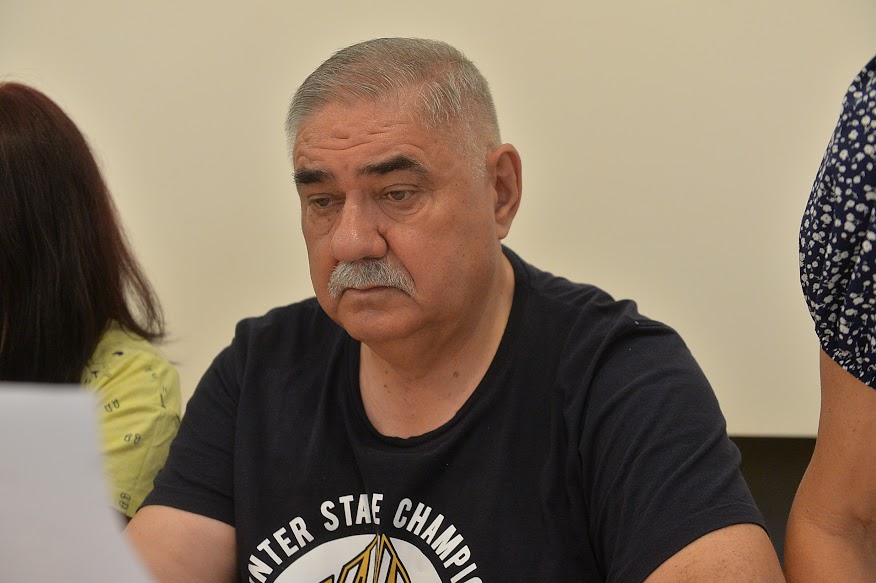
“I don’t take protective equipment so as not to draw attention to the fact that I am a media person. And in general, our attempts to establish systematic communication with the military have not been successful; we do not even receive answers to our letters,” Anatolii Zhupyna explained.
Oleksandr Motsnyi, the editor-in-chief of the Krasnopillia newspaper Peremoha (Sumy Region), noted that even the military told him that accreditation would only hinder a journalist with local registration. Although Oleksandr Motsnyi‘s meeting with the defenders began with a misunderstanding, now it has been possible to establish good cooperation.
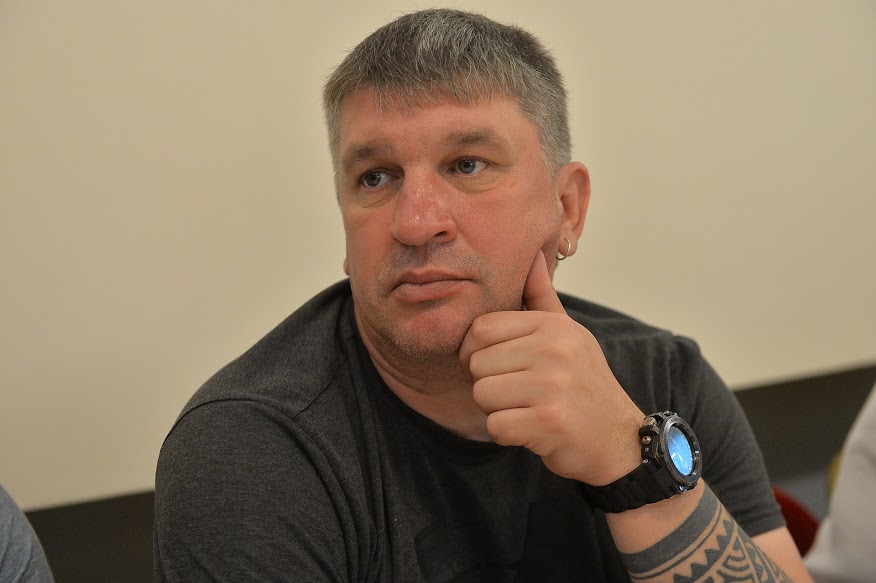
“They even subscribed to 300 copies of the newspaper,” said Oleksandr Motsnyi. He also advised media workers who go on business trips to dangerous zones to behave appropriately because the military can extrapolate the behavior of one journalist to the entire media community.
Tetiana Kaushan, the editor of the Putyvlski Vidomosti newspaper (Sumy Region), emphasized that some press officers are not ready to communicate with the media because they believe that the information the military posts on Facebook is enough for society.
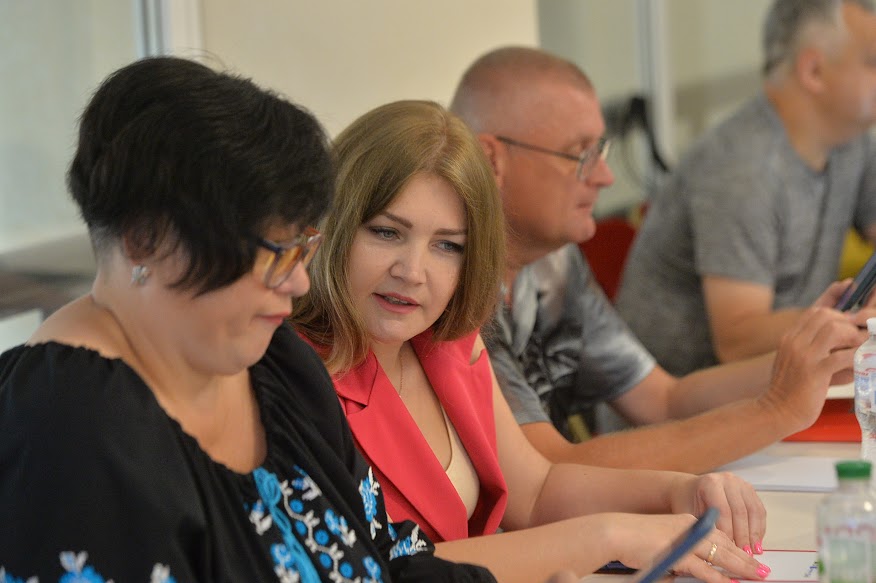
Svitlana Karpenko, the editor-in-chief of the Trudova Slava newspaper from the front-line town of Orikhiv (Zaporizhzhia Region), was more fortunate. She managed to establish communication with the military.
“Perhaps we were lucky with a press officer who understands the importance of the local press, so there is a response to our requests. The first article about our military has already been published in Trudova Slava,” said Svitlana Karpenko.
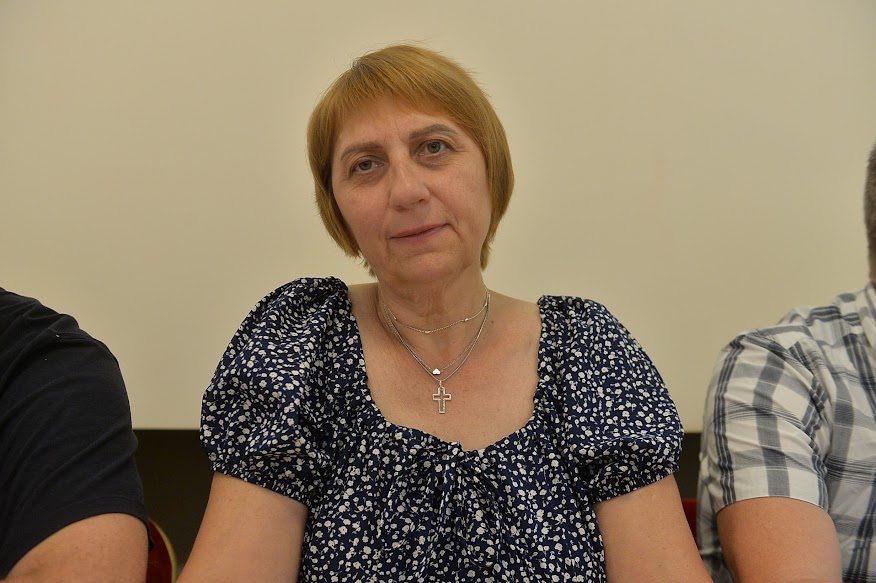
However, media editors drew attention to another problem concerning publishing information about our military. In particular, Anatolii Zhupyna noted that there are cases when press officers talk about dead soldiers whose relatives are in the occupied territories, perhaps without knowing about it. In this way, exposing people to additional danger is risky.
And on the other hand, media editors noticed another trend and talked about the fact that not only press officers but also other military personnel have become more closed in communication with journalists.
“I would like the press officers to pay more attention to the media. After all, we know how best to convey information about the military to our readers. However, a trend has been noticed that the military is generally reluctant to communicate with journalists,” noted Tetiana Kaushan.
At the same time, defenders rejoice when they receive newspapers in the trenches with materials about them. Oleksandr Pasichnyk, the editor-in-chief of the Lyman City newspaper Zoria, drew attention to this fact.
Therefore, a certain problem emerges: on the one hand, the desire of the military to read about themselves, including in the local press, and on the other hand, the reluctance to communicate with the media. How can we solve this problem?
According to Lina Kushch, the First Secretary of the NUJU, in the first place, the issue of obtaining accreditation is the one to be resolved. After all, the established order must be followed. For its part, the NUJU plans to take a number of steps to establish more effective communication between press officers and the media.
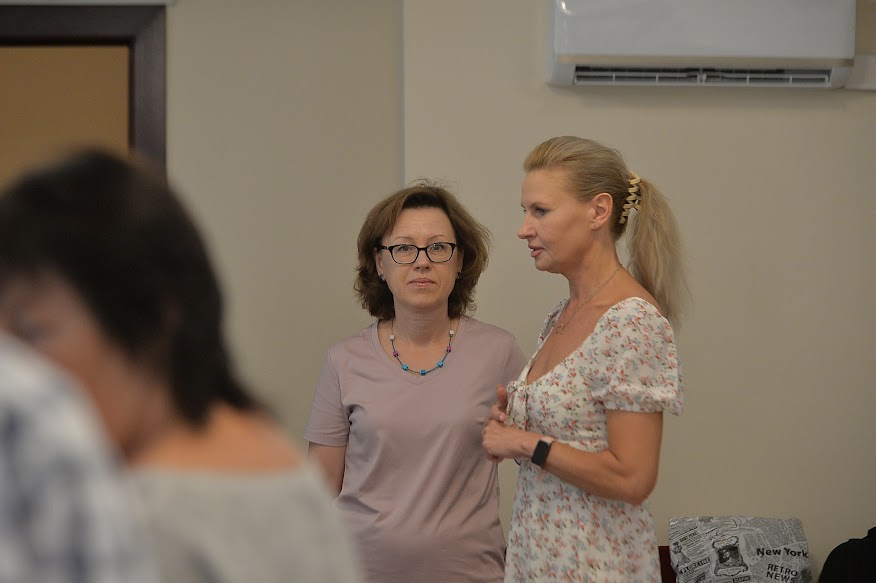
“The NUJU communicates both with the Armed Forces of Ukraine and with the Security Service of Ukraine regarding the interaction of the two bodies with journalists, so we see that there is a problem, and it is necessary to develop an algorithm to solve it. We see that relevant training is needed not only for journalists but also for press officers. They need to understand how to correctly and clearly present information and interact with the press. One of the first steps is to start a direct line as for mass media communication with military representatives. Tetiana Uralova will be responsible for such a line,” Lina Kushch informed.
For her part, Tetiana Uralova gave her advice to the editors:
- AFU’s accreditation should be obtained by every journalist working in any zone during martial law;
- it is necessary to establish cooperation between the press officers and units on rotations in the front-line zones;
- if it is not possible to collect the material on the spot, it should be available at the press officer;
- in order to get accreditation faster, a journalist must clearly mention what media they are collecting information for, what the purpose is, and provide links to their media’s publications.
The editors also made their suggestions for effective work in the front-line areas. In particular, the media were unanimous in the fact that it is necessary to tell as much as possible about our defenders, about their deeds, about the complex and sacrificial path of Ukrainians to Victory. For example, Oleksandr Pasichnyk said he manages to establish personal contacts with soldiers who always agree to an interview.
In addition, the editors suggested holding regional meetings of the press officers of the divisions in whose area of responsibility the front-line station is located with the journalists who work there. According to media experts, only face-to-face contact can make the work of the regional mass media effective and cooperation with the defense forces mutually beneficial and constructive.
Lina Kushch thanked the editors of newspapers from the front-line and de-occupied territories for the fact that, despite everything, they hold their informational front and continue to fulfill their professional duties.
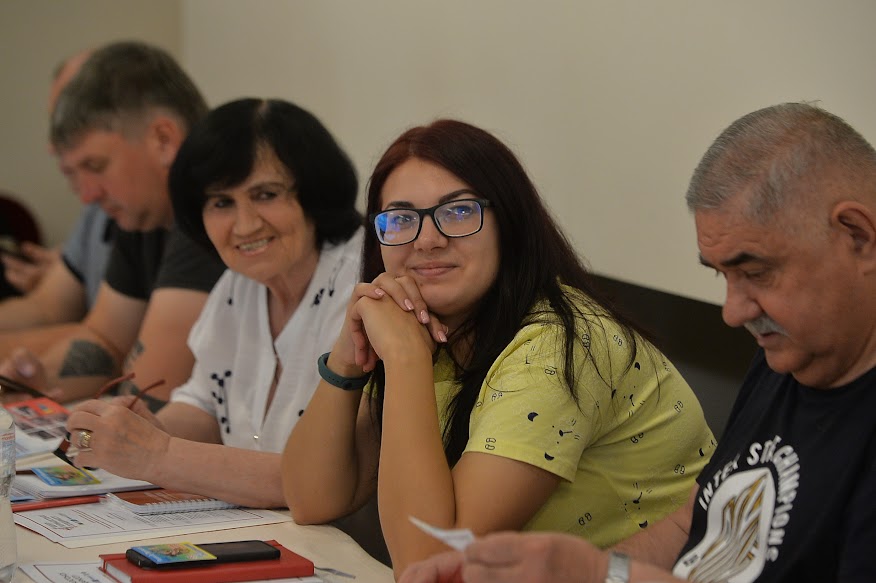
Inna Kosianchuk
NUJU Information Service

 THE NATIONAL UNION OF
JOURNALISTS OF UKRAINE
THE NATIONAL UNION OF
JOURNALISTS OF UKRAINE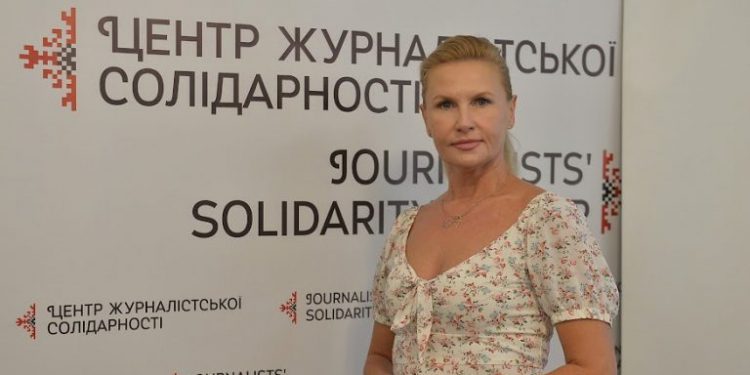
















Discussion about this post